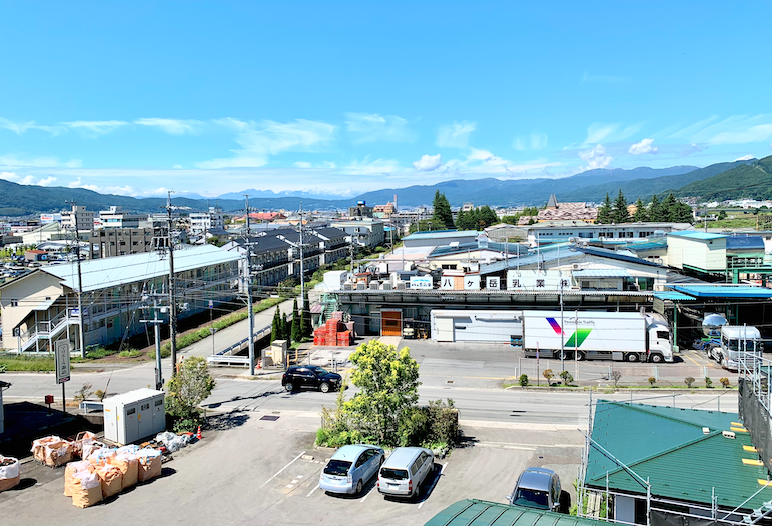基本動詞でこんな表現あんな表現!
【 Basic Verbs Usages 】 基本動詞でこんな表現あんな表現!
英国の象徴ロンドン塔
ビッグ・ベンの鐘の音は世界中に響き渡る
荘重な歴史の重みを乗せて...
********** Unit 1 ≪DO≫ **********
● 1. 動詞の前に置いて強調を表わします
* So I did see you! 「やっぱりお会いしましたねえ!」
* I'm afraid I did talk too frankly.
「あまり正直に話し過ぎたのではないかしら」
* "Why didn't you come yesterday?" "But I did come."
「どうして昨日は来なかったの?」「いや行ったんだよ」
● 2. 動詞の前に置いて懇願やお願いなどを表わします
* Sit down. Please do sit down. 「どうぞ。どうぞお座り下さい」
* Do be quiet! 「静かにしてってばぁ!」
* Tell me, do . 「お願いだよ、話してくれよ」(※doを後置した例)
● 3. 倒置により強調を表わします
* Jean? Well, little did she say.
「ジーンのこと?うーん、ほとんど話さなかったよ、彼女」
* Only yesterday did I see Robert.
「ようやく私ロバートに昨日会ったのよ」
● 4. 職業や仕事を表わします
* "What do you do (for a living)?" "I do teaching."
「お仕事は何でしょうか」「教師をしています」
* I'll do some reading today.
「今日はちょっと読書でもしよう」
● 5. 「事を終える」という意味です(=finish)
* You have done more than enough!
「それで十分だよ、よくやったよ!」(※頑張った相手への労いの言葉)
* The headmaster's long speech was finally done !
「校長先生の長~いお話がやっと済んだんだよ!」
* What's done cannot be undone .
=What's done is undone .
「覆水盆にかえらず」(済んだことは元に戻らない)★ことわざ (proverb)
● 6. 「任務や力を果たす」という意味です(=finish)
* You have to do your duty. 「君は義務を果たさなければならない」
* I'll do my best.=I'll do utmost. 善を尽くします」=I'll try my utmost.
● 7. 「掃除する・片付ける・洗う・お化粧する」という意味です!これは便利♪(^0^)
★ (do のあとの目的語により意味が異なります!)
* Do your room, Valletta. 「お部屋の掃除をしなさい、ヴァレッタ」
* Are you really going to do your room in blue? It'll be funny!
「部屋の壁を青く塗るって本当かい?そりゃ変だよ!」
* "Today it's your turn, Bob.""OK. I'll do the dishes."
「今日はあなたの番よ、ボブ」「オッケー。じゃあお皿を洗うよ」
* "Have you done your teeth?" "Not yet, mum."
「歯は磨いたの?」「まだだよ、ママ」
* You do your face nicely today.
「今日はきれいにお化粧しているね」
* I must do my correspondence.
「手紙の返事を書かなくちゃ」
* The restaurant doesn't do lunch, they say.
「あのレストランは昼食はやってないらしいね」
● 8.「学科を専攻する・問題を解く」という意味です
* My cousin is doing physics. 「いとこは物理学を専攻しています」
* Why can't you do a problem about that matter?
「どうしてあのことの問題を考えられないの?=考えてみたらどうなの?」
● 9.「見物する」という意味です
* He did Paris in a week. 「彼はパリを1週間で見て回った」
* Have you done the Louvre? 「ルーブル美術館の見物はもう済んだ?」
● 10.「役を演じる・劇を上演する」という意味です
* Collins has once done Hamlet at that opera house.
「コリンズはあのオペラ・ハウスでハムレットを演じたことがある」
* Our class has decided to do Macbeth at the school festival.
「僕たちのクラスでは文化祭にマクベスをやることに決まりました」
● 11.「(人・物に)害・益をもたらす」という意味です
* Too much drinking will do you harm.
「酒の飲み過ぎは体に悪い」
* His kindness does him credit.
「彼は親切なので評判がよい」
● 12.「だます・詐欺にかける」という意味です
* I've been done ! 「だまされた!」
* Grey tried to do Catherine out of her money.
「グレイはキャサリンをだまして金を巻き上げようとした」
IDIOMS or others
★ do away with~ 「廃止する」
* We should do away with these old rules. (=abolish)
「この古い規則は廃止するべきだ」
* That poor girl really did away with herself.
「あの哀れな娘は本当に自殺してしまった」
★ do badly for~ 「蓄えが乏しい」
* These area has already become the battlefield, so people living here
are doing badly for foods and medical cares.
「この辺り一帯は戦場になったので、住民は食糧や医薬品が不足している」
★ be done for 「もうくたびれた」
* I'm done for . 「疲れてもう駄目だぁ」
★ do somebody (=sb) in 「くたくたにする」
* That bike ride really did me in .
「あのバイクに乗ってもうくたくたになっちゃった」
★ do sb out of 「騙して報酬を与えない」
* The reporters were afraid that the out-of-court settlement would
do them out of a story.
「そんな示談話ではネタにありつけない、と記者たちは心配していた」
★ do it 「効を奏する」
* Quick-fix dieting won't do it . Steady does it .
「急場しのぎのダイエットをやっても駄目だ。着実にやると効果が上がる」
※steady=steady dieting
★ do with 「我慢する」
* I cannot do with his rude manner.
「彼の失礼な態度は我慢できない」
★ do a world of good 「効果がある」
* This medicine can do a world of good for me.
「この薬は私には本当に効果があるわ」
* The behavior did his reputation no good.
「その行為は彼の評判を悪くした」
★ do something (=sth) over 「やり直す」
* If you make too many mistakes, the teacher will make you do it over. 「あまりにもミスが多ければ先生はやりなおしをさせるだろうね」
★ have sth to do with 「関係がある」
* The overdose had nothing to do with the patient's death.
「投薬のし過ぎは患者の死とは関係がなかった」
********** Unit 2 ≪COME≫ **********
● 1.「(物・数量が)達する」という意味を表わします
* His hair comes down to his shoulders.
「彼の髪は肩まである」
* The bills comes to $40 plus a $5 tip.
「お勘定は40ドル、それにチップ5ドルということになります」
● 2.「姿を現わす」という意味です
* The moon came and out .
「月が見えたり隠れたりした」
● 3.「(時・事柄が)到来する」という意味です
* The time may come when people will have
used up all the oil.
「人間がすべての石油を使い切ってしまう時が訪れるかも知れない」
* The news came as a great surprise to me.
「その知らせは私には大変な驚きでした」
● 4.「(事柄が)結果として起こる」という意味です
* This kind of accident comes when you are
careless. 「この種の事故は不注意な時に起こります」
● 5.「(考えが)心に浮かぶ」という意味です
* Suddenly an idea came to him.
「突然ある考えが彼の心にひらめいた」
* An answer came into her mind at once.
「すぐさま返答が彼女の心に浮かんだ」
* It suddenly came to me that I had once
been here. 「一度ここに来たことがあると私はふと思った」
● 6.「(商品などが)入手できる」という意味です
* This clock comes in four colors.
「この時計の色は4色ございます」
* The book didn't come cheap.
「その本は安くなかった」
● 7.「怒り・苛立ち・非難の感情」を表現します
* Come, come, you shouldn't do that.
「おいおい、そんなことはよせ」
* Oh, come now .
「まさか。嘘でしょう」
ジャンル別一覧
人気のクチコミテーマ
-
-

- 気になったニュース
- 幼少期のスクリーンタイムの過多が、…
- (2025-11-21 07:00:11)
-
-
-

- みんなのレビュー
- 茅野市の…
- (2025-11-20 17:35:54)
-
© Rakuten Group, Inc.




